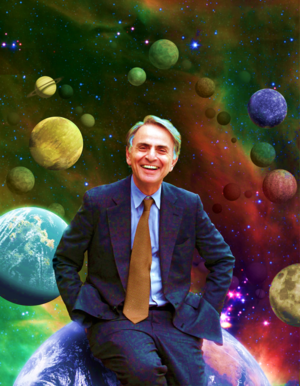August 22, 2020
Contact Finished covid-19: day 165 | US: GA | info | act
Contact was written by a scientist about scientists and science. It’s an interesting testament to the late-twentieth-century zeitgeist of multiculturalism, pop evangelicalism, super-power paranoia, eccentric billionaires, bleeding-edge science, and the human quest for understanding amid the noise of contemporary life. Contact is a science-fictional retelling of the Odyssey, but the role of Odysseus has been recast: instead the battle-hardened veteran returning from war and struggling through the vicissitudes that attempt to keep him from home, we have a woman radio astronomer, a misfit in a masculine field, who lost her father when she was young and has been trying to find him in her work ever since. Like Odysseus, Elinor Arroway is brilliant, but lost. She is trying to find her center by looking (listening) out into the universe for intelligent life, since most of those around her seem alien.
The novel is full of history, culture, religion, and science. It truly does seem to be a product of multiculturalism that was popular at the end of the last century. Sagan touches on many aspects of society and culture through Ellie’s eyes. Most of the time she is content to listen and absorb the stories she hears. When she acts, she is unsure of herself, like in the crucial meeting with the religious leaders Billy Jo Rankin and Palmer Joss. She expresses her religious skepticism—a skepticism that she argues is important for everything a scientist does—and concludes that god is sloppy for not making his desires more explicit: i.e., providing objectively measurable evidence of his existence. While this infuriates the evangelist Rankin, Joss seems delighted by her position. This will come back to haunt Ellie later.
I found Contact to be a bit robotic and cold, but maybe that was the point. The ending, too, seemed a bit cliché: journeying through the galaxy only to find the real, most valuable contact was the love between individuals: “For small creatures such as we the vastness is bearable only through love.” Extraterrestrials are cool and all, but if we don’t have our own shot together, what difference does it make? Contact laments a world of shit at the same time it celebrates its wonders.
I like that Contact celebrates intelligence and ingenuity, but shows the tremendous forces that work against it. Sagan seems to suggest that while some narratives might seem totally alien, that does not necessarily make them inferior—again that multicultural message. The big conflicting narratives in the novel are faith versus science, or belief versus evidence. Sagan does his best to respect belief, but ultimately an empirical approach wins the day. However, he seems to go to great lengths to show that the impetus for the search for god—the need for understanding the universe, is an inherent human quality. Ultimately it will be science that will gain greater insights and a unified version of truth. All the worlds religions have the feeling right: they’re just missing the facts to support it—the true explanation that will show god once and for all.
Here’s the interesting part of the book: while science aims for consensus, individuality is equally important. Science is about improving the whole of humanity, but love is about individual expression and connection. It’s when these narratives get crossed is when trouble follows.
Contact has two antagonists that provide warnings here: S. R. Hadden and Michael Kitz. The former is the eccentric CEO who becomes obsessed with science only for personal gain, and the latter is the political insect: a paranoiac who might mean well, but ends up shaping a reality based solely on his misguided and distrustful attitudes toward difference.
. . .
The Odyssey is about the hero who sets his lands in order for the good of his community—about the wise ruler who learns wisdom through his travels and suffering and brings these home to his people. He suffered so they did not have to. His quest may begin with an individual desire, but ends in a self-effacing altruism.
